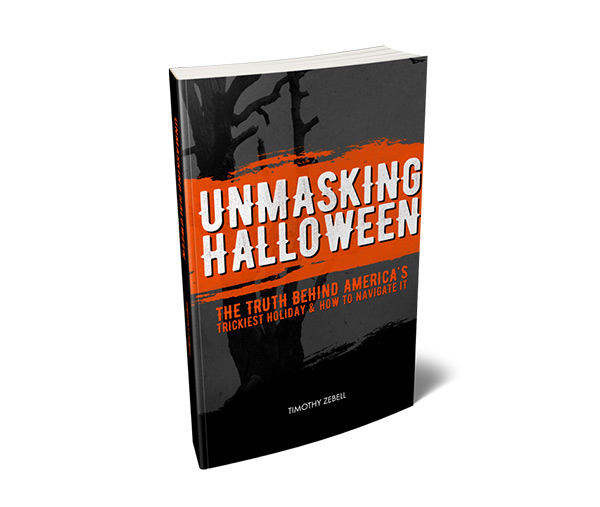“Kansas wants people to stay home during the novel coronavirus pandemic—except if they are going to church,” begins a U.S. News and World Report article by Susan Milligan.[1] The author is appalled that church is considered an essential service in a state where more than 7 in 10 Kansans attend religious services, and 37% go weekly. However, Milligan finds comfort in the theory that the governor’s decision is merely an attempt to “maintain a kind of friendly image toward Republicans,” believing that “this was to send a signal as much as anything else.” Fortunately, officials in Kansas’ largest counties have already issued more restrictive guidelines.[2]
Throughout the country people are demanding that churches close their doors in this time of crisis with headlines appearing such as the Atlantic’s “Close the Churches”[3] and the New York Times’ “The Road to Coronavirus Hell Was Paved by Evangelicals.”[4] Some churches can readily adapt to live streaming, but not all are capable of such adjustments—especially those who believe regular sacraments, such as communion, are mandated by God. Nevertheless, society has insisted that all churches cease convening together, regardless of whether it contravenes God’s mandate and regardless of whether churches are capable of adjusting to live stream. As far as society is concerned, if a church can’t adjust, so be it. They still shouldn’t be allowed to assemble. It seems that society has decided the services a church provides its congregation are not essential to the basic needs of our country.
State governments agree. In Virginia, “Governor Ralph Northam (D) has made attending church services of 10 or more people a class one misdemeanor, punishable by up to a year in jail, with the additional option of adding or substituting a $2500 fine.”[5][6] Moreover, pastors have already been arrested and charged in Louisiana and Florida with misdemeanors for continuing to congregate for Sunday worship—despite following safety measures that are at least comparable to those found in grocery stores.[7][8]
This article is not addressing questions of religious liberty, social responsibility, social distancing guidelines, reckless faith, the role of loving one’s neighbor in a pandemic, or whether churches can continue to meet online. Rather, the focus is on the attitude of our culture toward the role of church. Have we reached a point where our culture has determined that churches offer no more value to society than schools and other important institutions that have been closed out of a sense of social responsibility? Has society judged the value of social gatherings at churches to be comparable to that in beauty salons, fitness centers, movie theaters, stadiums, bowling alleys, and casinos? Could it be that society has weighed the value of our contemporary churches and deemed their message and services to be virtually irrelevant to daily life, offering nothing in a time of crisis that our country can’t live without?
This development should speak volumes to every pastor and every Christian in America! It should shake us to our core and grieve us. Something is dreadfully wrong if churches throughout our country can close their doors without their communities feeling devastated. How much worse when those communities cheer it?
Yet, I can’t help but question how many parishioners may share the sentiments of our society at large. Do members of these churches feel as though their churches are uniquely equipping them with a message and tools that they can’t find elsewhere? Faced with an unprecedented crisis, have American Christians looked to their pastors to help them navigate this time of difficulty, or have they been content to rely upon the instructions of the government? Certainly, we have sought comfort and encouragement from our church leadership, but is this all we expect from our churches in helping us to navigate these difficult times? If so, then churches truly have become non-essential elements of society, considering that we can readily find comfort and encouragement elsewhere.
For some churches it could be that the value of our social gatherings really are not much different from those found in beauty salons and fitness clubs. Far too many churches have frittered away their opportunities in good times by providing little more than repackaged chicken-soup-for-the-soul-style messages of hope, love, and self-improvement. We’ve learned how to live with purpose, simplify our lives, and how to live our best lives now, but what have we learned that we simply can’t live without? How have or churches prepared us to excel when life is disrupted?
Were we to honestly evaluate our nation’s sermons, would we conclude that they have prepared us to stand firm in our faith through such trying times as these? Would we conclude that they have prepared us for practical ministry to those in need during a time of crisis such as this? Would we conclude that they have equipped us with the knowledge to respond to the difficult moral, ethical, and existential questions that arise from a global pandemic and a cratering economy? Would we conclude that they have anchored our hope and assurance in something unmoored to the American dream? In short, are we today grateful for how our churches have prepared us for such a time as this, or are we joining the rest of America in tuning into the president’s daily press briefings in search of answers and direction to get us through this time?
The president and his health officials regularly speak about how this pandemic will fundamentally change the way society operates long after this crisis is completed. In what ways will the church fundamentally change the way it seeks to prepare God’s people when this crisis is finished? Will we return to our same programs and traditions, or will we learn from this stark reality check that the way we “do church” in America seems to have been judged to be non-essential by society at large?
Free Downloads
Share...
1. Milligan, Susan. “How Guns and Church Services Became Essential Business.” News. U.S. News and World Report, March 30, 2020, 5:38 p.m. https://www.usnews.com/news/national-news/articles/2020-03-30/how-guns-and-church-services-became-essential-business-during-the-coronavirus-pandemic.
2. Milligan.
3. Inazu, John. “Close the Churches.” Atlantic, March 18, 2020. https://www.theatlantic.com/ideas/archive/2020/03/close-churches/608236/.
4. Stewart, Katherine. “The Road to Coronavirus Hell Was Paved by Evangelicals.” Opinion. New York Times, March 27, 2020, 5:00 a.m., ET. Internet Archive Way Back Machine. Accessed April 1, 2020. https://web.archive.org/web/20200327092121/https://www.nytimes.com/2020/03/27/opinion/coronavirus-trump-evangelicals.html.
5. Stockes, Frankie. “Ralph Northam Says Churches Are ‘Non-Essential,’ Bans Services of 10 or More People.” National File, March 29, 2020. https://nationalfile.com/ralph-northam-says-churches-are-non-essential-bans-services-of-10-or-more-people/.
6. Northam, Ralph. “Executive Order 53.” Commonwealth of Virginia Office of the Governor, March 23, 2020. https://www.governor.virginia.gov/media/governorvirginiagov/executive-actions/EO-53-Temporary-Restrictions-Due-To-Novel-Coronavirus-(COVID-19).pdf.
7. Rddad, Youssef and David Mitchell. “Central Pastor Cited after Defying Coronavirus Order: ‘This Is an Attack on Religion.’” Advocate, March 31, 2020, 11:55 a.m. Last updated March 31, 2020, 9:57 p.m. https://www.theadvocate.com/baton_rouge/news/coronavirus/article_e7c0a2a0-7369-11ea-9de7-030a7a7fbef3.html.
8. Lanning, Jason. “Pastor Arrested on Public Health Violation: ‘Church Is an Essential Business.’” Spectrum News, Bay News 9, March 31, 2020, 5:52 a.m., ET. https://www.baynews9.com/fl/tampa/news/2020/03/31/pastor-arrested-on-public-health-violation—church-is-an-essential-business-.
Unless otherwise noted, all Scripture quotations are taken from The Holy Bible, English Standard Version, copyright ©2001 by Crossway Bibles, a publishing ministry of Good News Publishers. Used by permission. All rights reserved.








